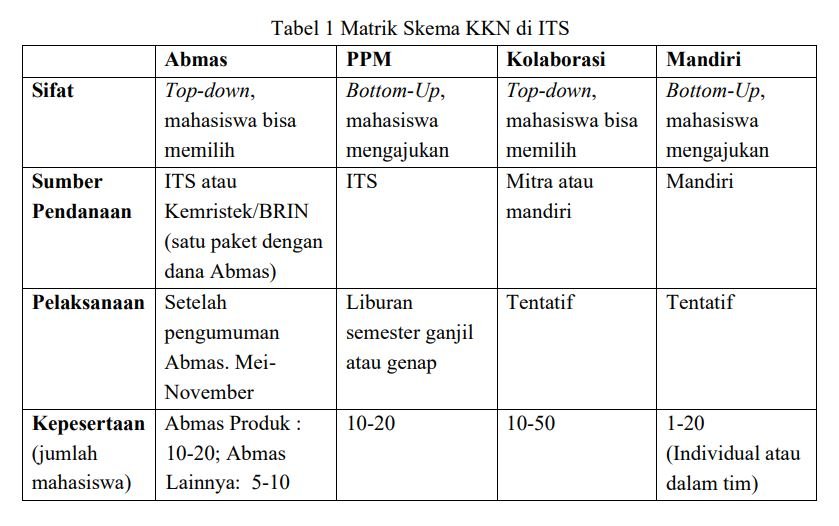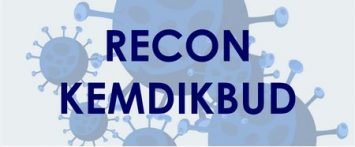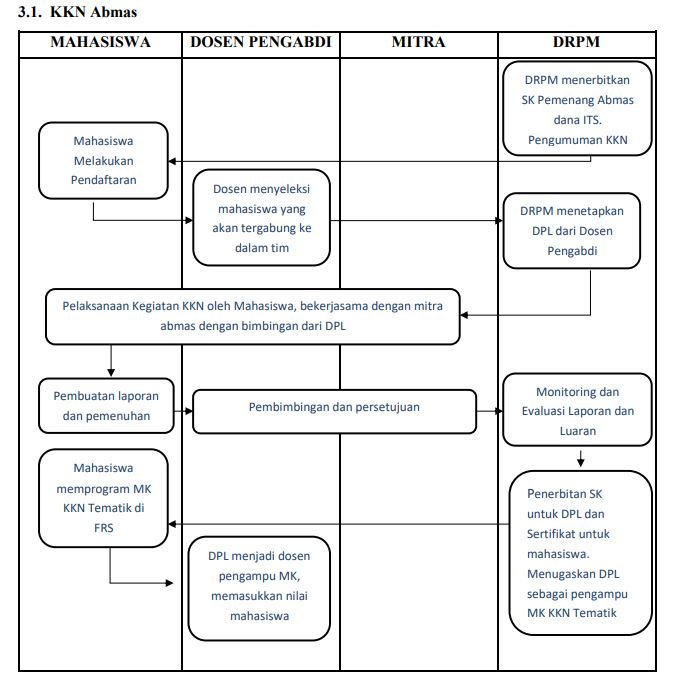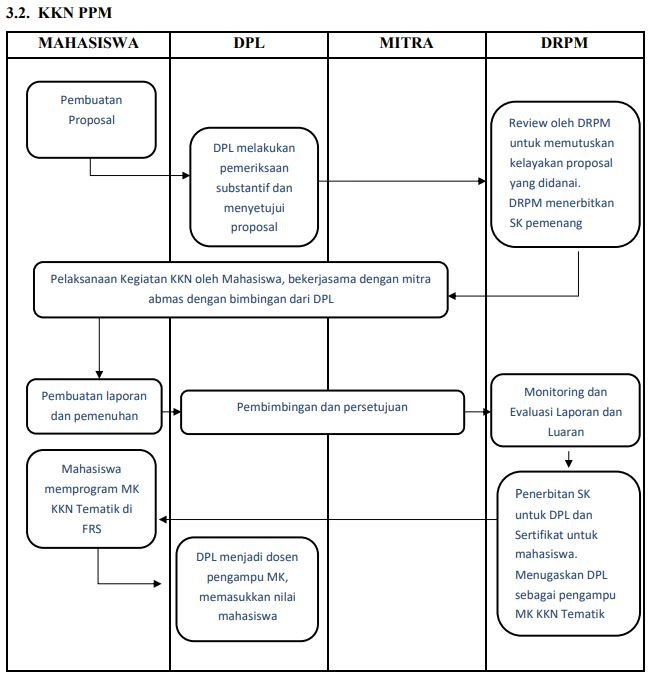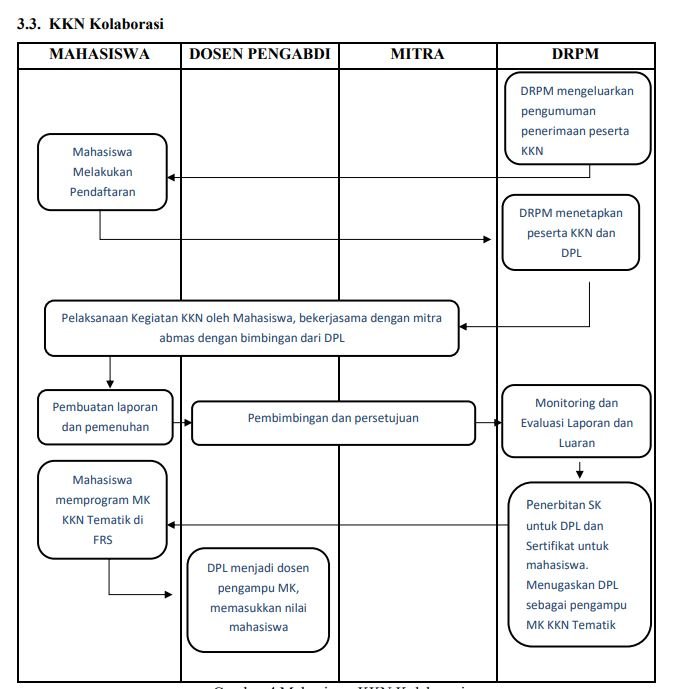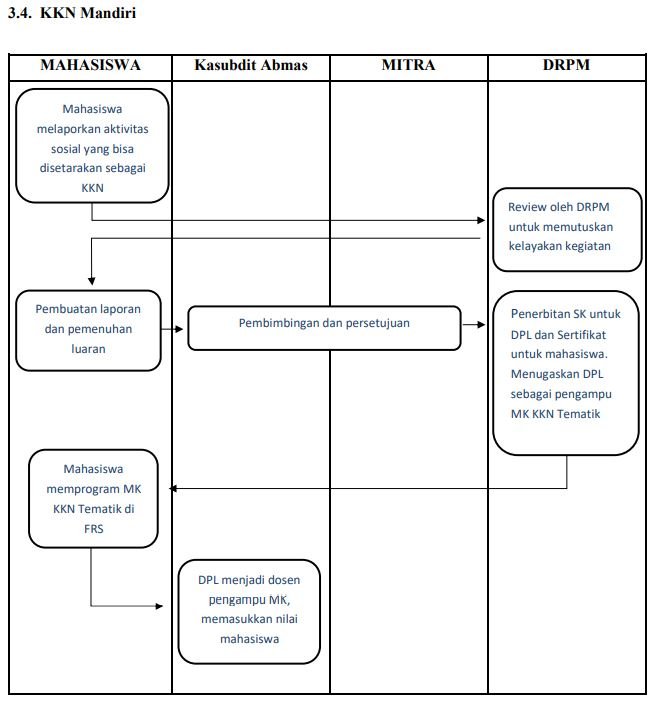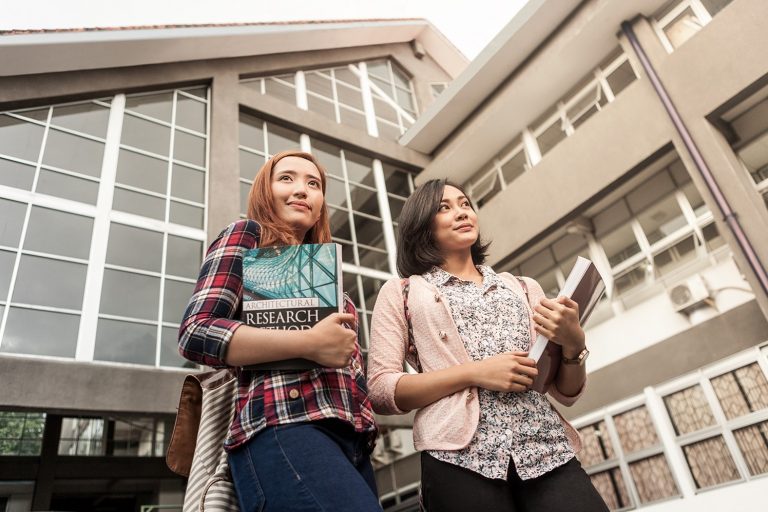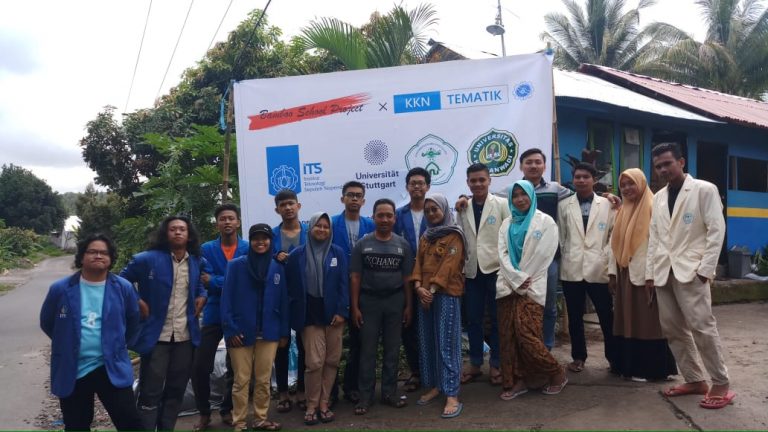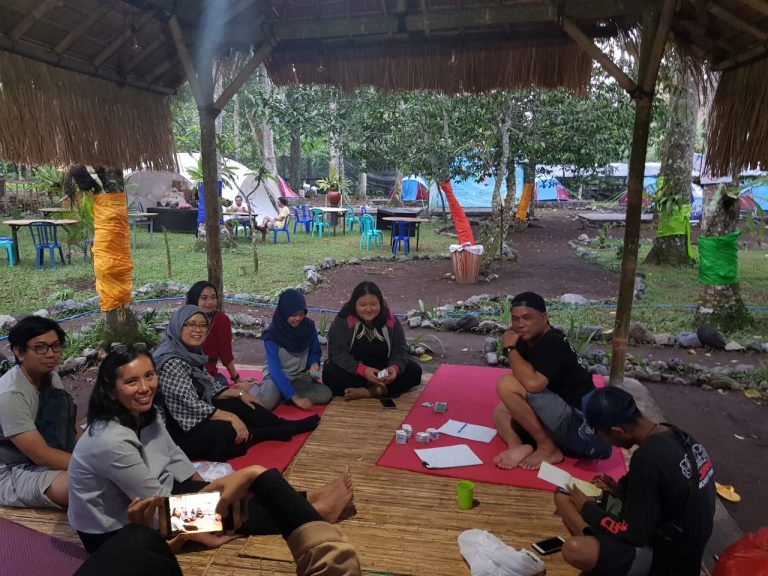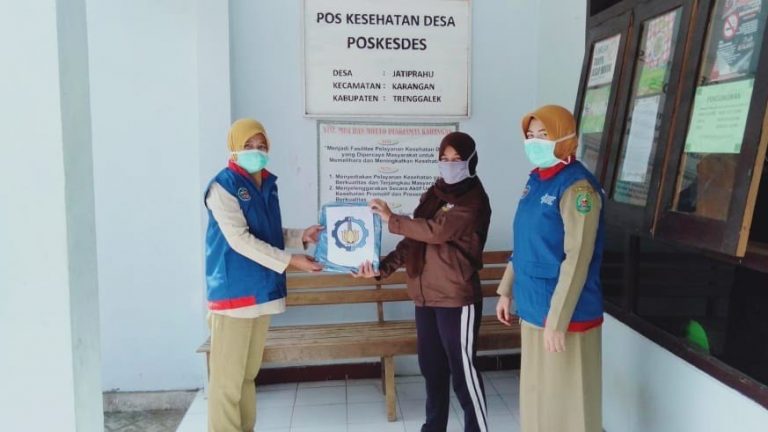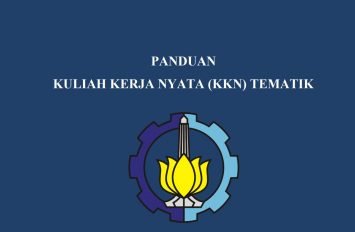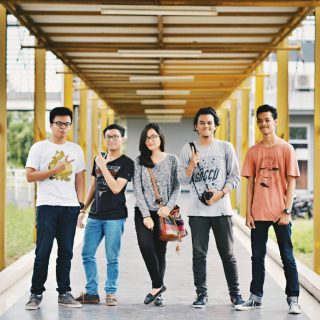I. BACKGROUND
The Real Work Lecture Program (KKN) has become part of educational activities as well as community service, but its implementation has stopped since 1989. Given the importance of this activity to become a life learning laboratory in the midst of society as well as one of ITS’ hands in helping solve problems faced by the community, the implementation of KKN at ITS was revived. As an initial stage, KKN started from the villages in the city of Surabaya which focused on 4 themes:
- IT Utilization.
- Community Problem Solving (Garbage, Waste, etc.)
- Formal Education (teaching students outside of school)
- Online Marketing Training for SMEs
The above KKN was organized by field 1 and was still limited in terms of place and time of implementation which was only 1 week. Starting in 2020, KKN is the responsibility of the DRPM with the aim of facilitating the integration of activities with community service programs (Abmas), but academically it is listed as part of the Insights and Technology Application Course (Wastek, 3 credits). For this reason, every KKN activity must meet predetermined process and output standards.
II.GOALS AND OBJECTIVES
The objectives of the implementation of KKN are:
- Increase student empathy and concern.
- Applying science and technology in a team work and interdisciplinary manner.
- Instilling personality values: a) Tenacity, work ethic and responsibility; b) Independence, leadership and entrepreneurship.
- Instilling the spirit of researchers from an early age: a) exploratory and analytical, b) Encouraging learning communities and learning societies.
- National contribution through activities that can solve problems in the community
- As an indirect means in the promotion and branding of institutions
KKN activities are directed to 3 targets, namely:
A. Student
- To deepen students’ understanding, appreciation, and experience of: a) Interdisciplinary and cross-sectoral ways of thinking and working. b) The usefulness of the results of education and research for development in general and rural area development in particular. c) Difficulties faced by the community in development and the overall context of regional development problems.
- Maturing students’ mindsets in analyzing and solving problems that exist in society in a scientific pragmatic manner.
- Forming attitudes and feelings of love, social care, and student responsibility for the progress of society.
- Provide skills to students to carry out development and development programs.
- Fostering students to become innovators, motivators, and problem solvers.
- Provide experience and skills to students as development cadres.
By participating in KKN activities, students are expected to gain experience of living in a community and be able to develop and apply academic knowledge. The success of the activity program is measured by the extent to which students have an understanding of the problems that exist in society, look for alternative solutions, carry out socialization, communication, and coordination with various parties to realize the solution they choose.
B. Community (Partners and Government)
- Get help with ideas and energy to plan and implement community development.
- Improve the ability to think, behave, and act in solving problems.
- Obtaining the necessary reforms in regional empowerment.
- Forming community empowerment cadres.
C. College
- Higher education is more focused in developing science and knowledge, with feedback as a result of student integration with the community. Thus, the university curriculum will be adapted to the dynamics of society.
- Universities can collaborate with government agencies or other institutions in the development of science and technology.
- Universities can develop science and technology that is more useful in managing and solving various problems in society.
III. COMPETENCE
The ITS KKN program is held to produce students with the following competencies:
- Able to analyze problems and potentials in the community
- Able to design empowerment programs
- Able to manage interdisciplinary collaboration networks
- Able to carry out empowerment programs based on local wisdom and potential
- Able to formulate accountability for accountability-based empowerment program performance
IV. PROGRAM FOCUS KKN

Sustainable Development Goals
The focus of the Community Service Program is in the form of sustainable development goals (SDGs), including the following 17 goals:
- Without Poverty.
- No Hunger
- Good Health and Prosperity
- Quality Education
- Gender equality
- Clean Water and Sanitation
- Clean and Affordable Energy
- Economic Growth and Decent Work
- Industri, Inovasi dan Infrastruktur
- Reducing Gaps
- City and Community Sustainability
- Responsible Consumption and Production
- Action on Climate
- Underwater Life
- Life on Land
- Strong Judicial Institutions and Peace.
- Partnership to Achieve Goals
All SDGs activities are directed at strengthening implementation and reviving the global partnership for sustainable development
